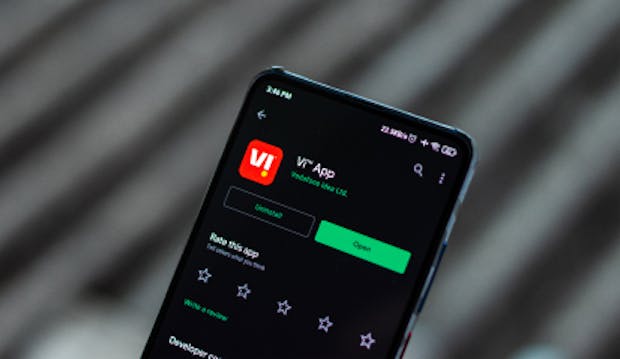are Vi’s troubles finally over?

the government picking up stake in the beleaguered telecom company has received mixed reactions from the market.
six months ago, telecom major Vodafone Idea was facing a financial crisis. it lost 1.24 crore subscribers in Q1 FY22. Sequentially, quarterly loss widened from Rs 7,022 crore to Rs 7,319 crore. the company slipped into a precarious financial position and was forced to pin its hopes on a moratorium on spectrum dues.
cut to 2022, Vi Q3 FY22 losses again rose 59.5% to Rs 7,230 crore. but a rescue plan was suddenly in sight when the government took up an offer to eventually hold 35.8% in the company.
it appeared to be the light at the end of the tunnel. however, the markets made their displeasure felt as the stock crashed 21% in the wake of the announcement.
would the government takeover the company is what the markets wondered. but as soon as there was a possibility of a smaller-than-expected stake sale, the stock surged 6% again.
so, what’s the deal?
Vi had been facing a tough time with spectrum dues of over Rs 1 lakh crore. in October 2021, the government announced a four-year payment moratorium which it and its peers accepted.
this extension gave the telco additional time to arrange for finances while simultaneously growing the business. meanwhile, the government gave an option to telcos to convert interest on the dues into equity and Vi is the sole company to take this up.
it hiked its tariff rates in November 2021 in an attempt to improve average-revenue-per-user (ARPU). this had some positive effect with ARPU growing sequentially by 5.2% over the previous quarter to Rs 115 as of December 31. as a result, its revenue also grew 3.3% to Rs 9,717 crore in Q3 FY22.
but the telecom player’s troubles are far from over. the financial crisis continues and the stake sale is yet to take place. losses are on a steady increase and subscriber base fell by 2.26 crore users over 12 months, to 24.7 crore as of Q3 FY22.
last year’s tariff hike may not be enough so the company is readying itself to raise prices again. while this may help increase the ARPU, it will negatively impact subscriber additions in the short term.
during its post-earnings analyst call, the Vi management said that the due-deferment will provide liquidity support and direct the cash flow generation towards capex investment and business growth. but what was alarming was the value of the interest dues. the company said that the Net Present Value (NPV) of this interest is around Rs 16,000 crore. this amount would be converted into equity capital when the government purchases a stake in the telco.
another cause of worry is the ability to attract investors for additional funding. in July 2021, the company had planned to monetise assets and raise Rs 7,400 crore. that plan is yet to materialise. on its earnings call, the company stated that the equity stake conversion will be helpful in the ongoing discussion of funding. while it didn’t share any details, it said that the company has seen renewed interest from investors and added that this fund-raise would be concluded within this financial year.
is recovery in sight?
the real picture will only emerge once the government’s stake purchase in the telecom company is completed. this, coupled with the fund-raising could help Vi sustain and build its business.
2022 will be a monumental year for the telecom industry because of the proposed 5G spectrum auctions. Vi has already begun its 5G trials and has deployed this technology across segments such as gaming and smart healthcare.
financial troubles aside, the company has also started taking steps to diversify its operations. Mobile Streams, a UK-based technology company said that it will partner with Vi to offer games, e-sports, and metaverse services through its mobile application. these premium services will supplement the monthly bill in the form of add-on payments.
from an analyst perspective as well, some thawing has occurred. CARE Ratings has upgraded its rating on Vi’s long-term debt to stable. this is on the back of the moratorium and assurances from the company that it will continue to be professionally-run even post government stake purchase.
so, is the worst finally over for the company and consequently its stock? while it is too early to make predictions, the stock has moved from Rs 6.90/share levels in August to Rs 10.85/share as of February 8. the future growth outlook of the company hinges on how soon the capital infusion exercise and equity stake sale are completed.



